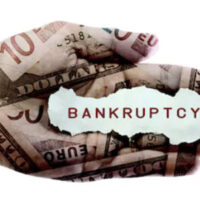How Much Will My Payments Be in Chapter 13 Bankruptcy?

In a chapter 7 bankruptcy, your income matters. Make too much, and you may not pass the means test, the test to see if you make too much to file a Chapter 7 bankruptcy. If you do, you will have to file a Chapter 13 bankruptcy. But your income still matters in Chapter 13 bankruptcy because of the income required to pay off a Chapter 13 repayment plan.
Disposable Income
In a Chapter 13 bankruptcy, you must show that you have the income to pay off some of your creditors. This is sometimes called the best efforts test. This test requires that you use your disposable income (or as much of it as possible) to pay off certain creditors whose payments are included in your Chapter 13 payment plan.
Of course, you need income to have the money to do that, which is why if you make too little to have any disposable income you may have a problem getting a Chapter 13 plan approved.
Disposable income has a complex definition, and you should consult with a bankruptcy attorney because your definition of disposable income is not necessarily the bankruptcy code’s definition. But if you do have disposable income, you will have to pay your secured debts (such as car loans, or mortgages) and a part of your unsecured debts (such as medical bills, or credit card bills) in your payment plan.
You don’t have to pay off your unsecured creditors at 100% on the dollar the way you may have to for secured creditors. But you do need to have some disposable income to make some payment.
Median Income
Disposable income is less important if you make below the median income in your state. In that case, you may end up paying very little to unsecured creditors in your Chapter 13 plan—sometimes, nothing.
But because many people who make less than the median income end up filing Chapter 7, most people in Chapter 13 make at or above the median income.
If your income is above the median income, you will be able to deduct your income by living expenses, any secured payments (like car or home loans), and some debts that are known as priority (usually, debts that would be nondischargeable in a Chapter 7, such as child support, some income taxes, or criminal restitution).
The money left over after these deductions is considered disposable income, and must be paid monthly towards your unsecured creditors.
In some cases, the amount you pay may be more than your disposable income if you have property that is not exempt under the bankruptcy code. In that case, you will have to pay your creditors an amount equal to your non-exempt property (divided by the months in the Chapter 13 plan) if that amount is more than your monthly disposable income.
Call the West Palm Beach bankruptcy lawyers at Kelley Kaplan & Eller at 561-264-6850 to discuss what bankruptcy chapter is right for you, and what you can expect in your bankruptcy case.
Resource:
uscourts.gov/forms/means-test-forms/chapter-13-calculation-your-disposable-income



